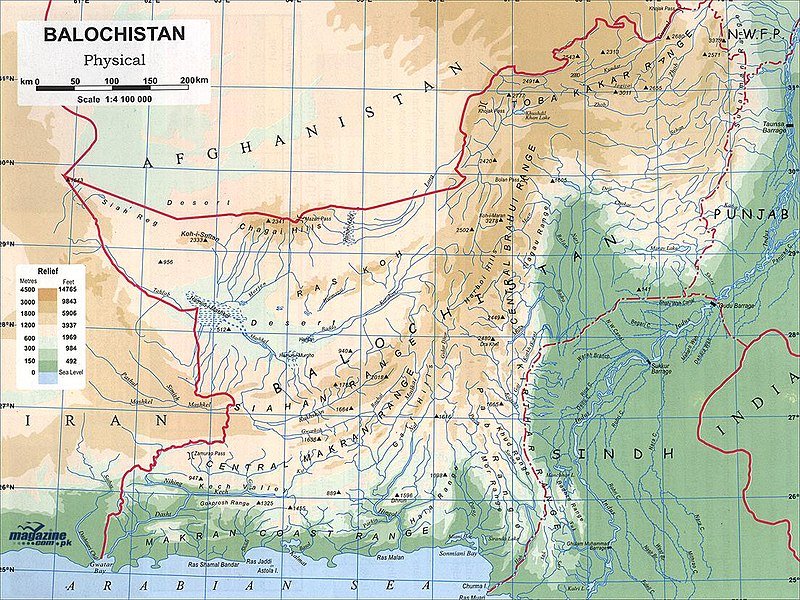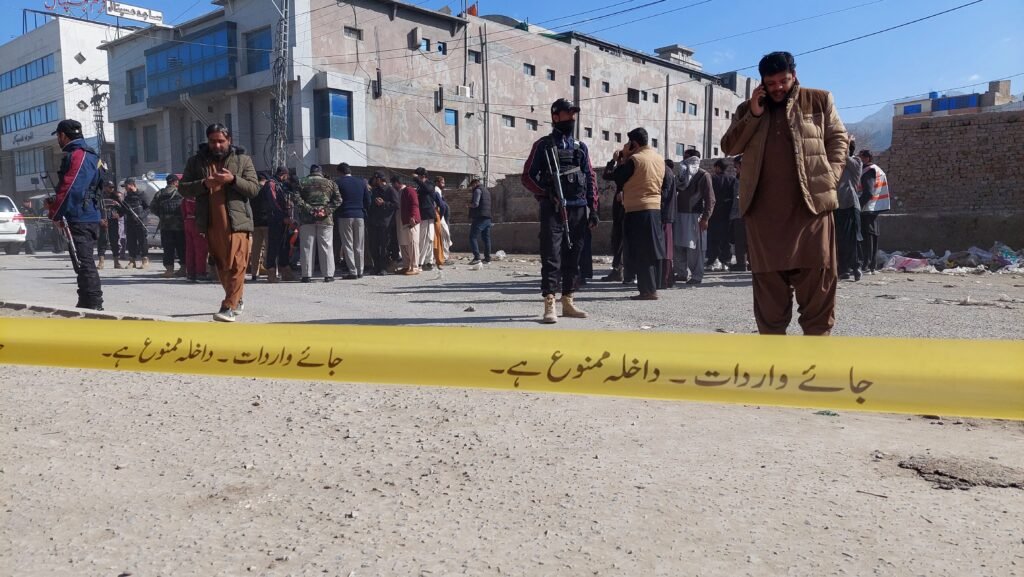Massacres in Balochistan: 38 Killed as Pakistan’s Crisis Worsens—What It Means for Regional Stability
Balochistan Massacres: Pakistan’s Crisis Worsens with 38 Dead—Regional Stability at Risk
Recent Attacks and Casualties
In a series of coordinated Baloch army attacks, Balochistan has once again become the epicentre of violence in Pakistan. At least 38 people have been killed in recent assaults carried out by separatist groups, primarily the Baloch Liberation Army (BLA). These attacks targeted police stations, highways, and railway lines, marking one of the deadliest periods in the province’s recent history.
Impact on Internal Stability
The recent massacres have exacerbated the already volatile situation in Balochistan, posing significant challenges to Pakistan’s internal stability. The Pakistani government has been struggling to manage multiple crises, including economic instability, political turmoil, and ongoing conflicts in other regions. A nation that once spread terrorism in the name of Islam is now battling the same deadly force within its borders. The escalation in Balochistan adds another layer of complexity, stretching the country’s security apparatus thin and diverting resources from other critical areas.
Broader Implications for Regional Security

The implications of these attacks extend beyond Pakistan’s borders, affecting regional security dynamics. Balochistan’s strategic importance, particularly due to the China-Pakistan Economic Corridor (CPEC), makes it a focal point for international interest. The increased violence could disrupt CPEC projects, impacting China’s investments and regional economic plans.
Moreover, the instability in Balochistan could shift Pakistan’s focus away from Jammu and Kashmir, potentially opening a window for peace in that region. However, this is contingent on how effectively Pakistan can manage the insurgency in Balochistan and whether it can stabilize the situation without further escalating tensions elsewhere.
Expert Opinions

Security Analysts: Muhammad Amir Rana, a security analyst and director of the Pak Institute of Peace Studies (PIPS), emphasizes the need for a comprehensive strategy that addresses both the security and socio-economic aspects of the conflict. He highlights the importance of dialogue and political solutions over military responses.
Geopolitical Experts: Experts warn that the internationalization of the conflict, particularly with Chinese involvement, complicates the situation. They suggest that regional cooperation and international mediation could play a role in resolving the conflict.
Local Leaders: Many Baloch leaders advocate for greater autonomy and control over their resources. They argue that the current system is exploitative and does not benefit the local population.
Pakistani Government’s Response
The Pakistani government has responded with a mix of military operations and promises of development projects. Interior Minister Mohsin Naqvi recently visited Balochistan, vowing to support the provincial government in its counterterrorism efforts. However, critics argue that these measures are insufficient and fail to address the root causes of the conflict, such as political marginalization and economic exploitation.
Role of External Actors
External actors, particularly China, have a vested interest in the stability of Balochistan due to the CPEC4. China’s involvement has led to increased militarization and displacement of local communities, further fueling the conflict. Additionally, there are concerns about the role of neighbouring countries in supporting separatist movements, which complicates the security landscape.
Future Prospects
The future of Balochistan remains uncertain. Without addressing the underlying issues of autonomy, resource exploitation, and human rights abuses, the conflict is likely to continue. Analysts suggest that a more inclusive approach, granting greater autonomy and ensuring fair distribution of resources, could help mitigate the conflict. However, achieving this will require significant political will and a shift in the Pakistani government’s approach to Balochistan.
Conclusion
The recent massacres in Balochistan highlight the deepening crisis in Pakistan’s largest province. The implications for internal stability and regional security are profound, with potential ripple effects on Pakistan’s geopolitical standing. Addressing the ongoing tensions requires a multifaceted approach that includes political, economic, and social reforms. Only through genuine dialogue and equitable resource distribution can lasting peace be achieved in Balochistan.
More Articles
Broken Idols, Shattered Hopes: Bangladesh Hindu Minorities Face Escalating Violence in Post-Hasina
Malayalam Actor Siddique and Ranjith Face Heat as Sexual Assault Allegations Shake Film Industry
Live Update: University of Delhi UG Admissions 2024 Round 2 Allotment Results Released
Live Updates: Israel Hezbollah Conflict and Reopening of Ben Gurion Airport
Dr Sandip Ghosh RG Kar Medical College Case: CBI Concludes Polygraph Test on Accused Sanjay Roy
Anuradha Tiwari CEO: Bengaluru Executive Faces Backlash Over ‘Brahmin Genes’ Comment
Matched on App, Scammed at Godfather Club: Mumbai Man Loses ₹61,000 in Fraud Date Scheme
Durga Puja 2024: Celebrating Tradition with a Unique Environmental Twist Amid Urban Challenges
Pakistan Supreme Court Faces Uphill Battle in Protecting Ahmadiyya Rights Amid Extremist Backlash
Supreme Court of India Demands Immediate Action to Prevent Sexual Violence
Rising Tensions: Bangladeshi Hindus Face Protection Demands Amid Escalating Political Turmoil
Doctors Strike Nationwide Over Kolkata Rape-Murder Case: A Unified Call for Justice
Technical Glitches Mar Trump Musk Interview, Sparking Meme Frenzy and Online Debate
Discover more from
Subscribe to get the latest posts sent to your email.











2 COMMENTS